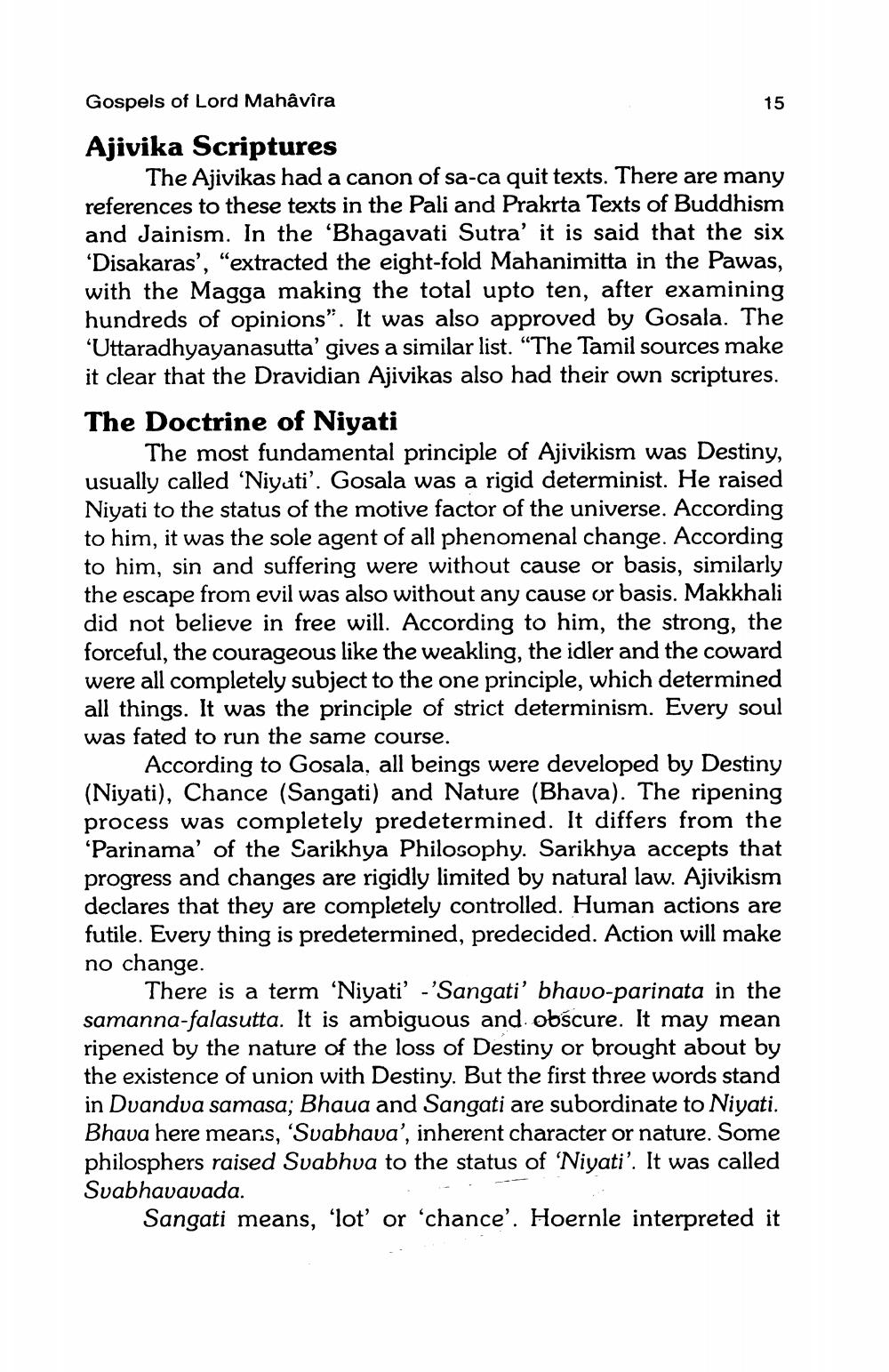________________
Gospels of Lord Mahâvîra
15 Ajivika Scriptures
The Ajivikas had a canon of sa-ca quit texts. There are many references to these texts in the Pali and Prakrta Texts of Buddhism and Jainism. In the ‘Bhagavati Sutra' it is said that the six “Disakaras', “extracted the eight-fold Mahanimitta in the Pawas, with the Magga making the total upto ten, after examining hundreds of opinions”. It was also approved by Gosala. The *Uttaradhyayanasutta' gives a similar list. “The Tamil sources make it clear that the Dravidian Ajivikas also had their own scriptures. The Doctrine of Niyati
The most fundamental principle of Ajivikism was Destiny, usually called 'Niyati'. Gosala was a rigid determinist. He raised Niyati to the status of the motive factor of the universe. According to him, it was the sole agent of all phenomenal change. According to him, sin and suffering were without cause or basis, similarly the escape from evil was also without any cause or basis. Makkhali did not believe in free will. According to him, the strong, the forceful, the courageous like the weakling, the idler and the coward were all completely subject to the one principle, which determined all things. It was the principle of strict determinism. Every soul was fated to run the same course.
According to Gosala, all beings were developed by Destiny (Niyati), Chance (Sangati) and Nature (Bhava). The ripening process was completely predetermined. It differs from the 'Parinama' of the Sarikhya Philosophy. Sarikhya accepts that progress and changes are rigidly limited by natural law. Ajivikism declares that they are completely controlled. Human actions are futile. Every thing is predetermined, predecided. Action will make no change.
There is a term ‘Niyati' -'Sangati' bhavo-parinata in the samanna-falasutta. It is ambiguous and obscure. It may mean ripened by the nature of the loss of Destiny or brought about by the existence of union with Destiny. But the first three words stand in Dvandva samasa; Bhaua and Sangati are subordinate to Niyati. Bhava here mears, 'Swabhava', inherent character or nature. Some philosphers raised Svabhua to the status of Niyati'. It was called Svabhavavada.
Sangati means, 'lot' or 'chance'. Hoernle interpreted it




